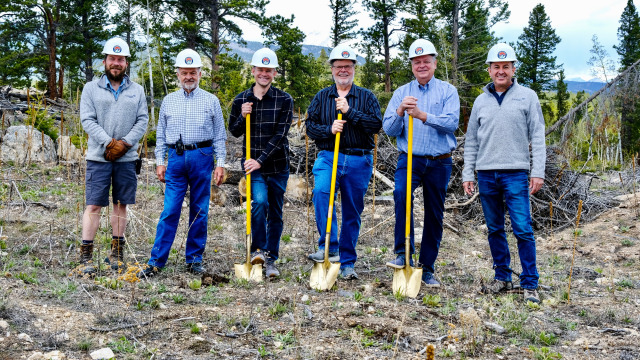A twenty-something young adult shared with me recently as part of a normal conversation, that they had never written a check. Being a Gen X er myself, I was taken aback a bit. How can someone who has reached adulthood never had an occasion to write a check? I realized that this is one of the hallmarks of Gen Z adults. Many of them have never written a check, and many of them will never have to write one.
Technology being what it is, and what it is evolving into, means that we can pay for things with credit cards stored on a phone. Your driver’s license can be put into your virtual wallet (mine is) so that you don’t have to pack a wallet or a purse these days, as long as you have your phone.
While the methods of moving money from one person to another, or from a person to a business, has changed and continues to change, the motivation for giving to a charitable organization, such as a local church, might be changing as well. Before we get into motivation, we should talk about some challenging data for the future funding of local churches.
Research seems to indicate that older generations tend to give more generously and more consistently to local churches. Younger generations tend to give less consistently and prefer to give to a cause that resonates with them, rather than simply funding a “local church budget.” Some of this research is not longitudinal enough for us to accurately predict how these younger generation’s giving patterns might change as they age. It could be that older people who have already retired have a more stable income and less expenses than a young family who haven’t peaked in their earning potential, who have children at home who are in private school, perhaps, and all the other associated costs of raising a family and building a life. These older folks may simply have more disposable income and a more steady and predictable income stream from which to give. But time will tell.
I can tell you from personal conversations with young adults that when they feel connected to their local church, their desire to support that church financially increases greatly, even if their ability to actually give funds to support that church is lacking. If the members of their local church do not make an effort to listen to the input of young adults, or if they don’t feel valued (seen and heard), then they are much less inclined to contribute financially, whether they are able to do so or not.
Motivation is a word that tells us more about ourselves than perhaps any other. Why do I do what I do, why do you do what you do? Something within us compels us to act or not act, to do or not do, to give or not give, to move or to stay put. So, what motivates us to give? What compels us to write a check (yes, some people still write checks)? or scan the QR code or hit up the Adventist Giving® app?
For some people, guilt seems to be a powerful motivator. I was talking with an experienced evangelist once and they shared with me that, when they get close to the end of a series of meetings and he asked people to make a decision about what they had been hearing, there is often at least one couple who will ask the evangelist to meet with them. He told me that they will tell him how much they appreciated the series of meetings and how much they had learned. Then they will try to hand him a check, usually for a very generous amount, to help “support the ministry.”
He said he always refuses this check because he has realized that often when people are wrestling with a decision: they will try to satisfy their conscience by making a large donation to pacify that still small voice. Instead of saying “yes” in agreement to what they had been studying, they give a large sum of money and turn away from the truth they were being convicted to follow. As if money will buy them favor with God to continue to live opposed to the truth they have come to know.
Giving away your hard-earned money to a local church requires motivation. But if that motivation is guilt (that if I don’t give, it makes me a bad person and God may not love me) or fear (fear that somehow, I will experience divine retribution for not giving) or really anything other than an inward compulsion of the Holy Spirit, then it is the wrong motivation for giving.
There is a term that has fallen a bit out of fashion these days and that term is “disinterested benevolence.” Disinterested benevolence means that a person may give to a project to which they may not totally agree, but they give anyway. It allows someone to give to an activity that may not be operating entirely to the giver’s satisfaction, but the giver consistently gives to support it. In short, it means that I am going to give, despite what the organization I am giving to does with it, within reason of course. For many people, especially young people, this seems absurd.
This way of giving, and the motivation behind it, is a foreign concept to some people. Some people want to give to get. The thinking goes something like this, “If I give this money, what am I going to get out of it?” There was a member of a church I was serving once who was really wanting that church to have an organ. The trouble was that the rest of the church did not want an organ. That person ended up writing a check (some people still write checks!) and earmarked that donation for a church organ. That donation alone was not sufficient to cover the cost of an organ and that money stayed on that churches balance sheet for years and years and the church never did purchase an organ. They were hoping they could give to get what they wanted.
Another way of looking at giving, a different motivation that what we just talked about, is that instead of “giving to get,” we “get to give.” With this mindset, giving is a privilege afforded us by a loving God as an act of worship. Giving, when seen through a lens like this, is an opportunity to praise God for our life, health, prosperity, and in the act of giving itself is a built-in mechanism to protect us against greed and hoarding up treasure for ourselves. If we believe what scripture teaches, that we are here to further the cause of Christ by sharing the message of a loving God who is soon to return, then giving generously to support that work is truly a high calling.
As a pastor for almost 20 years, I have seen so many generous Jesus followers who make ministry happen by supporting local churches and schools. Young and old alike, they give generously of their time and effort and influence and, yes, their finances, to try to grow the Kingdom of God. God doesn’t need our money, but He does want our hearts. And one of the easiest ways to see where our heart is, is to see where and how we spend our treasure.
And, yes, just to be clear, I do believe we need transparent accounting and accountability for if or when funds are mishandled. We need to talk more about what it actually costs to fund a local church and inspire one another to give more generously and more consistently. The gospel is free, yet having a place to worship and supporting the work of ministry and evangelism does carry a price tag. I am thankful that God always provides us with an abundance to, not just maintain the work, but to grow it!
Brandon Westgate is RMC Youth director. He was a congregational pastor for nearly twenty years. Email him at: [email protected]




